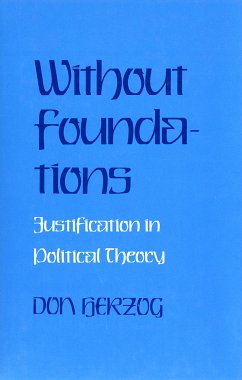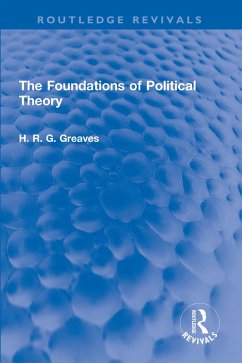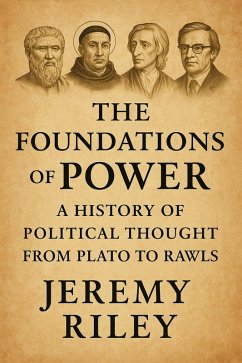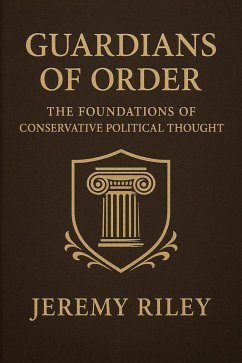
Without Foundations (eBook, ePUB)
Justification in Political Theory
Sofort per Download lieferbar
3,99 €
inkl. MwSt.

PAYBACK Punkte
2 °P sammeln!
Can political theorists justify their ideas? Do sound political theories need foundations? What constitutes a well-justified argument in political discourse? Don Herzog attempts to answer these questions by investigating the ways in which major theorists in the Anglo-American political tradition have justified their views. Making use of a wide range of primary texts, Herzog examines the work of such important theorists as Thomas Hobbes, John Locke, the utilitarians (Jeremy Bentham, J. S. Mill. Henry Sidgwick, J. C. Harsanyi, R. M. Hare, and R. B. Brandt), David Hume, and Adam Smith. Herzog arg...
Can political theorists justify their ideas? Do sound political theories need foundations? What constitutes a well-justified argument in political discourse? Don Herzog attempts to answer these questions by investigating the ways in which major theorists in the Anglo-American political tradition have justified their views. Making use of a wide range of primary texts, Herzog examines the work of such important theorists as Thomas Hobbes, John Locke, the utilitarians (Jeremy Bentham, J. S. Mill. Henry Sidgwick, J. C. Harsanyi, R. M. Hare, and R. B. Brandt), David Hume, and Adam Smith. Herzog argues that Hobbes, Locke, and the utilitarians fail to justify their theories because they try to ground the volatile world of politics in immutable aspects of human nature, language, theology, or rationality. Herzog concludes that the works of Adam Smith and David Hume offer illuminating examples of successful justifications. Basing their political conclusions on social contexts, not on abstract principles, Hume and Smith develop creative solutions to given problems.
Dieser Download kann aus rechtlichen Gründen nur mit Rechnungsadresse in A, D ausgeliefert werden.













